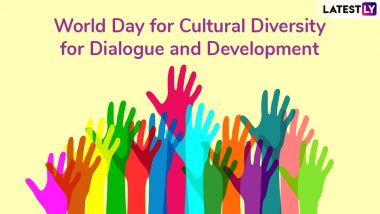Each year on May 21, The World Day for Cultural Diversity for Dialogue and Development is observed across the world. This day is widely celebrated to raise awareness among people to better understand the importance of cultural diversity which is believed to be the driving force of development. This day was proposed to promote peace, stability and development by bridging the gap between cultures. This will help alleviate poverty and achieve sustainable development.
Significance
In the wake of Covid-19, it has become imperative to highlight the damage inflicted on the cultural industry and their fundamental right of access to culture, the social rights of artists and creative professionals, and the protection of a diversity of cultural expressions. It has impacted the social, political and economic aspects in the cultural realm and the cultural tourism industry has taken a big economic hit.
The crisis has also had debilitating effect on creative and cultural industries. Pro-longed lockdown has resulted in loss of income and jobs which has impacted the entire creative value chain.
To address this issue UNESCO has launched a page "that aims to serve as a reference for those seeking to draw inspiration from best practices in the development of appropriate responses adapted to national contexts."
History
Following the destruction of the Buddha statue of Bamyan in Afghanistan in 2001, the United Nations Educational Scientific and Cultural Organisation (UNESCO) adopted this day as 'Universal Declaration on Cultural Diversity. The UN General Assembly (UNGA) in 2002, proposed a resolution 57/249 and announced May 21 to be The World Day for Cultural Diversity for Dialogue and Development, to "enhance the potential of culture as a means of achieving prosperity, sustainable development and global peaceful co-existence."
On October 2005, UNESCO Convention on the Protection and Promotion of the Diversity of Cultural Expressions proposed four goals - "to deepen our understanding of the values of cultural diversity"
- Support sustainable systems of governance for culture
- Achieve a balanced flow of cultural goods and services and increase mobility of artists and cultural professionals
- Integrate culture in sustainable development frameworks
- Promote human rights and fundamental freedoms
On this day, UNESCO encourages states and societies to organise conference, concert etc to promote cultural diversity.
(The above story first appeared on LatestLY on May 21, 2021 12:31 PM IST. For more news and updates on politics, world, sports, entertainment and lifestyle, log on to our website latestly.com).













 Quickly
Quickly




















